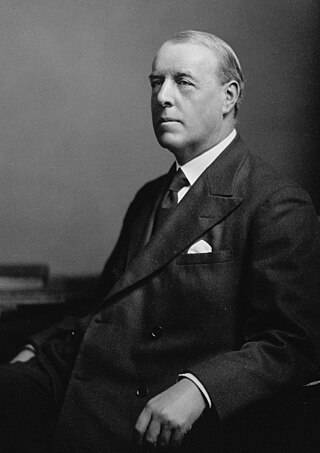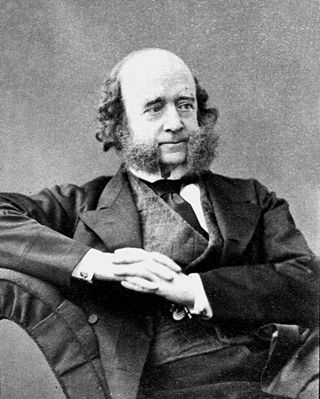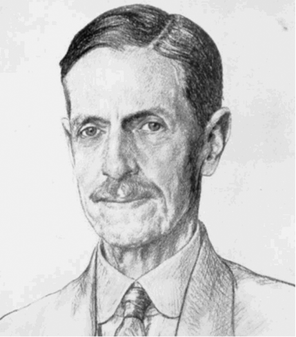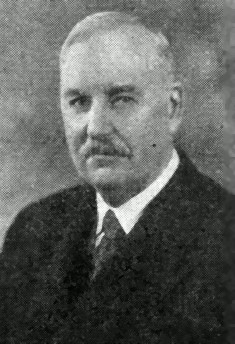Related Research Articles

William Smellie was a Scottish obstetrician and medical instructor who practiced and taught primarily in London. One of the first prominent male midwives in Britain, he designed an improved version of the obstetrical forceps, established safer delivery practices, and through his teaching and writing helped make obstetrics more scientifically based. He is often called the "father of British midwifery".

Naguib Pasha Mahfouz is known as the father of obstetrics and gynaecology in Egypt and was a pioneer in obstetric fistula.
Aleck William Bourne was a prominent British gynaecologist and writer, known for his 1938 trial, a landmark case, in which he was prosecuted for performing a termination of pregnancy on a 14-year-old rape victim. He was subsequently charged with procuring an illegal abortion but was acquitted. He later became an anti-abortion activist.

Samuel James Cameron was Regius Professor of Midwifery at the University of Glasgow from 1934 until 1942. The son of Caesarean Section pioneer Prof Murdoch Cameron, S.J. Cameron was a foundation Fellow of Royal College of Obstetricians and Gynaecologists in 1929, and for many years a member of the Gynaecological Visiting Society. A lifelong champion of the reputation of the founder of professional midwifery in the British isles, William Smellie, Cameron both named a maternity hospital at Lanark, Scotland, after him and saved Smellie's library from permanent loss.

Arthur Farre FRS was an English obstetric physician.

Sir John Harold Peel was a leading British obstetrician and gynecologist, who was Surgeon-Gynaecologist to Elizabeth II from 1961 to 1973, present at a number of royal births.
The Obstetrical Society of London existed from 1858 to 1907.
Charles James Cullingworth (1841–1908) was an English gynaecologist and obstetrician.
George Henkell Drummond Robinson FRCP (1864–1950) was a senior British physician specialising in obstetrics.
Frank Cook was a Beit Memorial Research Fellow, an eminent obstetric and gynaecological surgeon at Guy's Hospital, Hunterian Professor of the Royal College of Surgeons in London, consulting surgeon at the Chelsea Hospital for Women and a Freeman of the Worshipful Society of Apothecaries.

James Haig Ferguson LLD FRSE FRCPE FRCSEd was a prominent Scottish obstetrician and gynaecologist. He served as President of the Royal College of Surgeons of Edinburgh from 1929 to 1931 and was president of the Edinburgh Obstetrical Society. He chaired the Central Midwives Board of Scotland and was manager of Donaldson's School for the Deaf. In 1929 he was a founder member of the British College of Obstetricians and Gynaecologists.

Sir Ewen John Maclean was a British physician, who was the first Professor of Obstetrics and Gynaecology at the Welsh National School of Medicine.

Archibald Donald was consulting gynaecological surgeon at Manchester Royal Infirmary and professor of obstetrics and gynaecology at the Victoria University of Manchester. Donald was notable for routinely sterilising catgut sutures and for a surgical repair technique for Uterine prolapse that later became known as the Fothergills Repair and later still became known as the Manchester operation
Roy Samuel Dobbin was professor of midwifery and gynaecology at the Royal School of Medicine in Cairo and was obstetric surgeon and gynaecologist to Kasr-el-Aini Hospital. During the First World War he served as an officer with the Royal Army Medical Corps in France. He was a founding fellow of the Royal College of Obstetricians and Gynaecologists.
Thomas Watts Eden FRCOG was consulting obstetric physician to Charing Cross Hospital and consulting surgeon to both Queen Charlotte's Hospital and the Chelsea Hospital for Women. During the First World War he served as a major with the Royal Army Medical Corps. He was a founding fellow of the Royal College of Obstetricians and Gynaecologists.

Herbert Ritchie Spencer was professor of obstetrics at University College London.

Charles Richard Whitfield FRCOG, FRCP(G) was a Northern Irish obstetrician and gynaecologist who was a pioneer of maternal-fetal (perinatal) medicine. His primary interest was in fetal medicine, a branch of obstetrics and gynaecology that focuses on the assessment of the development, growth and health of the baby in the womb. He was also an early proponent of subspecialisation within the fields of obstetrics and gynaecology, a practice that is common today.

George Harold Arthur Comyns Berkeley was an obstetric physician, gynaecological surgeon and medical writer. Berkeley was most notable along with William Blair-Bell and Sir William Sinclair for creating the British College of Obstetricians and Gynaecologists. Berkeley was also noted for his writing collaborations with Victor Bonney, the book A Textbook of Gynaecological Surgery that is still considered a medical classic. It was as teacher that he excelled.
Sir Eardley Lancelot Holland FRCS, FRCP, FRCOG was a British surgeon and foundation fellow of the Royal College of Obstetricians and Gynaecologists. In 1943, he became the fifth president of the college.

William Edward Fothergill was professor of clinical obstetrics and gynaecology at the University of Manchester.
References
- ↑ Obituary in The Times , Dr. C.H. Roberts, 2 February 1929, p.14
- 1 2 3 4 5 6 7 8 9 "Roberts, Charles Hubert, (died 29 Jan. 1929), Temporary Assistant Physician Accoucheur St Bart's Hospital; Senior Physician, Samaritan Free Hospital for Women, London, and Physician to In-Patients, Queen Charlotte's Lying-in Hospital, London; Government Vaccinator to Queen Charlotte's Hospital; Member Visiting Staff War Hospital, Epsom; Hon. Obstetric Physician, Lady Howard de Walden's Maternity Home for Officers' Wives; Hon. Gynæcologist Hostel St Luke for Poor Clergy, London; Fellow of Royal Society of Medicine; late Hon. Secretary to Section on Obstetrics and Gynæcology, Royal Society of Medicine, 1913; Examiner in Midwifery and Gynæcology Conjoint Board, London; Examiner to Central Midwives Board, and Examiner in Obstetrics and Gynæcology, University of Sheffield, 1913" . WHO'S WHO & WHO WAS WHO. 2007. doi:10.1093/ww/9780199540884.013.U216228. ISBN 978-0-19-954089-1.
- ↑ "Munk's Roll Vol. IV (1826-1925), Charles Hubert Roberts, retrieved March, 2015". Archived from the original on 22 October 2015.
- ↑ H.E. Vipan, A Register of the Old Boys of the Bedford Modern School (Bedford, no date), p. 104.
- 1 2 "Munk's Roll Vol. IV (1826-1925), Charles Hubert Roberts, retrieved March, 2015". Archived from the original on 17 October 2015.